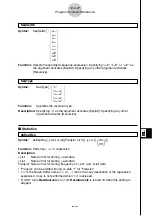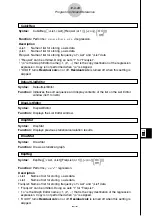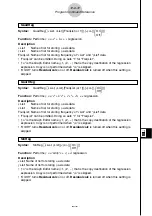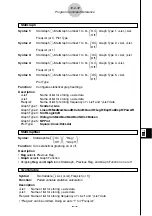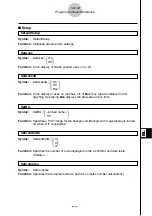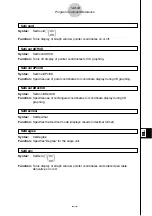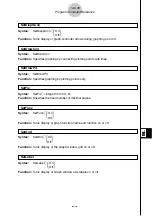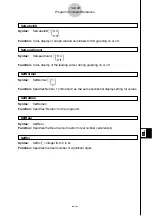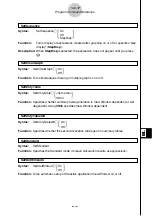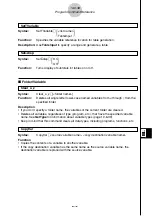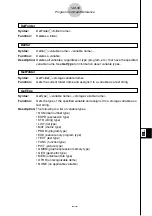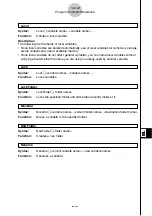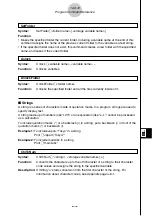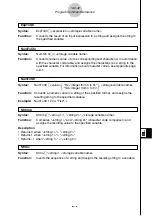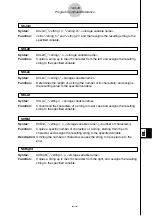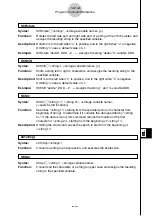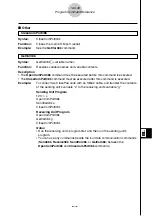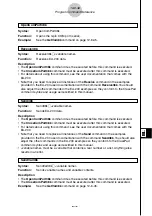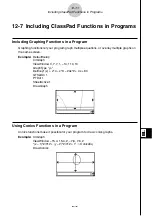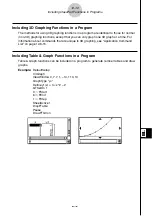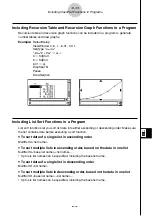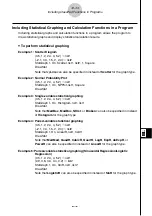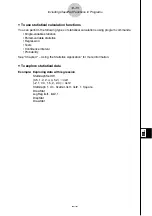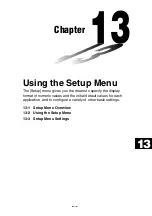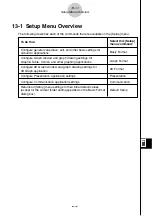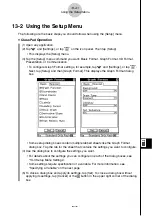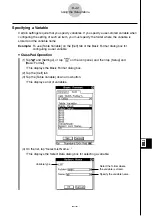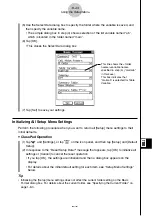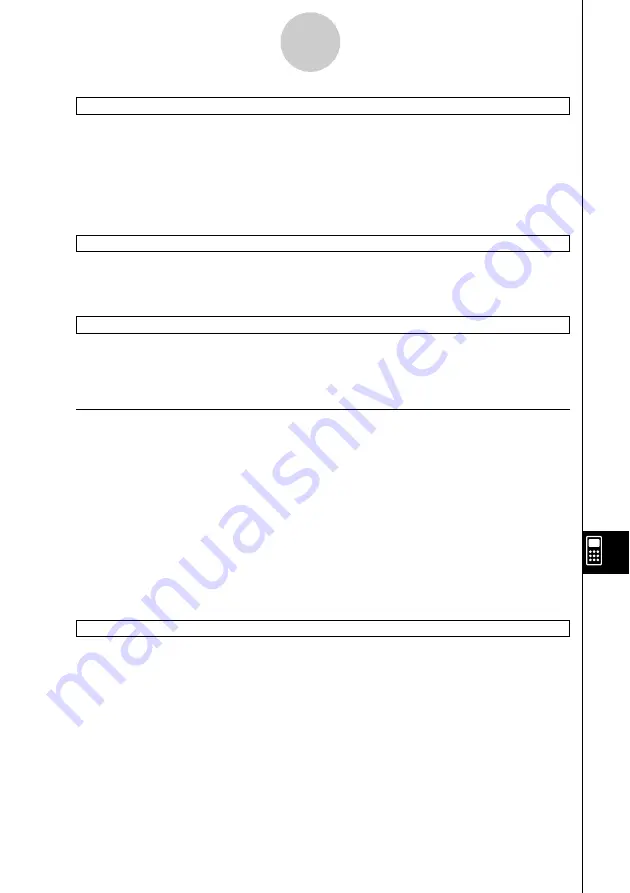
20021201
SetFolder
Syntax:
SetFolder
䡺
<folder name> [,<storage variable name>]
Function
• Makes the specified folder the current folder. Including a variable name at the end of this
command assigns the name of the previous current folder to the variable as a text string.
• If the specified folder does not exist, this command creates a new folder with the specified
name, and makes it the current folder.
Unlock
Syntax:
Unlock
䡺
<variable name>, <variable name> ...
Function:
Unlocks variables.
UnlockFolder
Syntax:
UnlockFolder
䡺
<folder name>
Function:
Unlocks the specified folder and all the files currently inside of it.
k
Strings
A string is a series of characters inside of quotation marks. In a program, strings are used to
specify display text.
A string made up of numbers (like “123”) or an expression (like “x–1”) cannot be processed
as a calculation.
To include quotation marks (") or a backslash (\) in a string, put a backslash (\) in front of the
quotation marks (") or backslash (\).
Example 1:
To include Japan: “Tokyo” in a string
Print
䡺
"Japan:\"Tokyo\""
Example 2:
To include main\abc in a string
Print
䡺
"main\\abc"
ChrToNum
Syntax:
ChrToNum
䡺
"<string>", <storage variable name>[,
n
]
Function:
Converts the characters up to the
n
th character of a string to their character
code values and assigns the string to the specified variable.
Description:
Omitting “
n
” starts conversion from the first character of the string. For
information about character codes, see Appendix page
α
-6-1.
12-6-41
Program Command Reference

